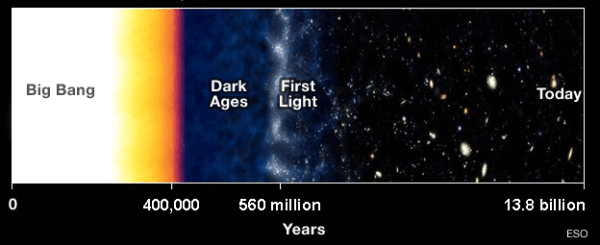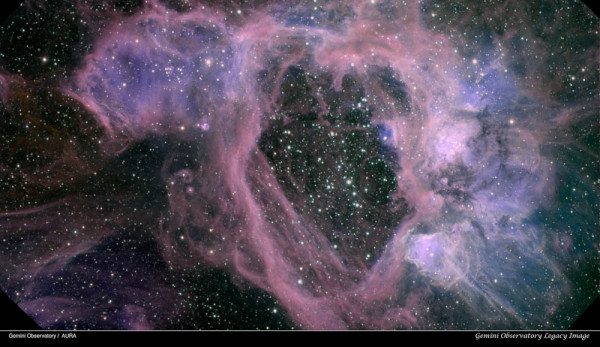“For my part I know nothing with any certainty, but the sight of the stars makes me dream.” -Vincent Van Gogh
When we look out into the Universe, farther back to greater distances, we're also looking back in time, farther and farther into the past. If we could look back far enough, close enough to the Big Bang, we'd be able to see the very first stars ever formed in the Universe: stars formed from the Big Bang's leftover material itself.
We'd never been able to find these before, but by looking at a starburst galaxy at extremely high redshifts, and measuring its signature spectroscopically, we were able to find strong evidence of hydrogen and helium, but none of carbon, oxygen, or any of the other "first-processed" elements we'd expect had we formed stars before. Is this the first true "Population III" sample in the Universe, or are we fooling ourselves?



Ethan Huge fan I loved ur article on the two big bangs because I think that's the biggest problem with the general public and scientist people who aren't interested think that the Big Bang is just a theory because they don't follow they don't understand the idea of the universe expanding from an incredibly small and dense past is fact they just hear or read an article on google that says Big Bang disproved and the author of the paper is talking about a singularity at the absolute beginning if physicist understood that about the public and like your article said split it up into two big bangs then even religious people would understand what's fact and not have a problem with it that being said my question is could u ever see something else come along that could pose a different answer for the cmb and that it's not the left over remnants from the Big Bang or you hear a quack say the universe isn't expanding could you ever see something completely disproving everything to where we go back to thinking the universe is in a steady state to where we know that it didnt expand from an incredibly dense small state thanks big fan would love to get an answer back
And don't every day discoveries of possible pristine gas or population 3 stars and chemically unevolved galaxies in the early universe help show beyond a shadow of a doubt that the general idea of the evolution of the universe is pretty air tight not just the big things like the cmb or galaxy red shifts or the Doppler effect but discoveries like thes made by astronomers everyday
Interesting interview, thanks for taking the effort to place these finds in the widest possible context!
Why do so many people talk about the Big Bang as though it is true. It is still only a theory. Observations do not completely support it and computer simulations are only as good as the theoretical data put into them.
What ever happened to true scientific methods?
@Cleveland Carter #4: Which observations, exactly? Is there any chance you have a reference to a paper (maybe a good review paper) outlining which observations conflict with LCDM cosmology?
@4: Michael wants your citations on observations that disagree. I'm more interested on papers where I can find these true methods discussed and applied. How old, for example, do your true scientific methods say the earth and the universe are?